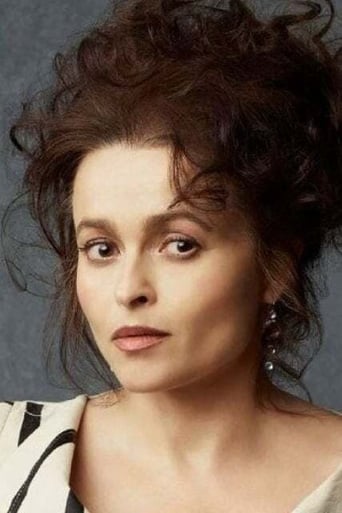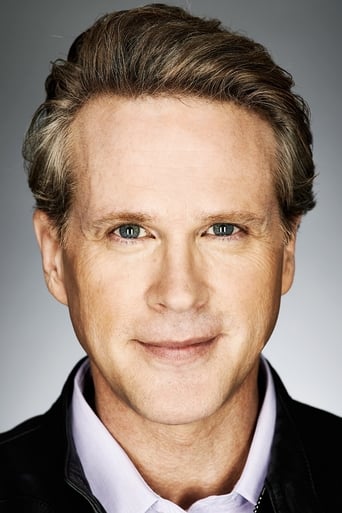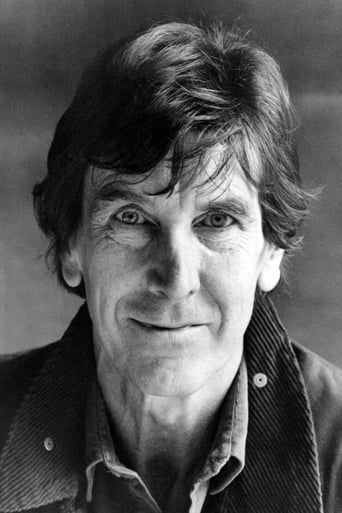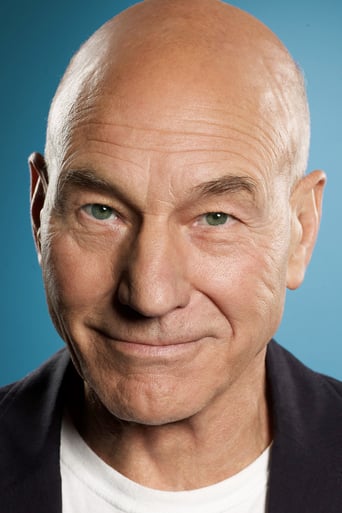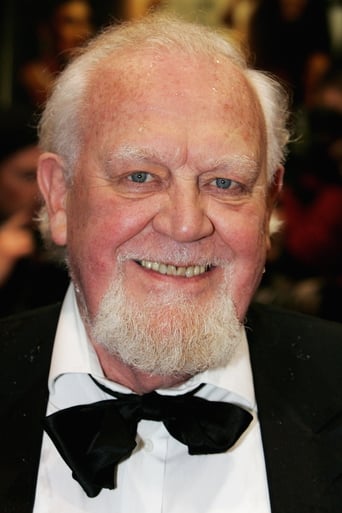chaswe-28402
History is the version of events that the winners have agreed upon, and I'm more than happy to accept this version. I only wish it had been longer. Beautifully written, exquisitely directed, perfectly performed, flawlessly paced. If the history wasn't exactly like this, it should have been. There's a hideously jaundiced review of this tremendous masterpiece skulking on the internet, courtesy of the Mancunian Grenadio, penned by an Axel van Twithead. Strongly reminds me of the woodnuts who complain that the film Troy doesn't follow the historical truths enshrined in the Iliad. Unbelievable.Further astonishment is purveyed by Wikipedia: Budget $8.5 million, Box office $277,646. Does this really mean $8.25 million went up in smoke ? Is that really possible ? Or do I misunderstand ? And Trevor Nunn has only made three films. I note that Shakespeare is his religion, but it was nevertheless exceedingly interesting to follow the theological and political discussions in Lady Jane. Slightly partisan portrayal of the avuncular Roman Catholic confessor, Dr Feckenham, and the motherly Bloody Mary, under whose rule Philip of Spain became King of England, and during whose five year reign the heretics went up in flames at the rate of one every week. As usual, the DVD case gets it wrong, by asserting that Jane disagreed with the religious beliefs of her fellow ProtestantsDifficult to tell who provided the Shakespearean shimmer over this tale, whether it was the writers, Edgar and Bryant, or principally Nunn, who would seem more probable. I gather nearly all the players were RSC. Look out for the little red-headed Elizabeth. The literary message is immortality through death and I'm a sucker for it. Truly, a memorable treat.
Kirpianuscus
not the historical accuracy does it a good movie. not the romance is the cause for admire it. the fundamental virtue remains the delicacy of the details. costumes, pieces of love story, the portrait of Jane, the atmosphere, the end. a film who translate in lovely images a dark story. with grace and wise and using the perfect actors for each role. a film who, in the clothes of fairy tale, presents the spirit of a period in its profound essence. and that fact does it more than a historical film or a nice romance. because it is a movie about power and its manner to use different people. because it is a pledge for high ideals in a cold reality. sure, Jane Grey was different by the beautiful portrait from the movie. but the basic traits are the same. and that fact is the source of the movie's seduction force. because it is only a small portrait of a world looking its roots.
AaronCapenBanner
Trevor Nunn directed this true historical account of the circumstances that led to the succession of the royal throne of England in the 16th century. Helena Bonham Carter plays 15-year old Lady Jane Grey, who is pushed into the throne by royal ministers after the death of King Henry the VIII. His son Edward is dying, and the reform-minded ministers do not want the Princess Mary as queen, because she is catholic, and Jane is protestant. Jane is forced to marry Guilford Dudley(played by Cary Elwes) to be Queen, but they do eventually fall in love, and decide to institute further reforms, which alarms the ministers, and seals their fates, as Princess Mary is leading her forces to usurp Jane... Fine cast and production in this handsomely mounted and interesting film. Certain historical facts may have been tweaked, and it is a bit long, but overall it works, with a moving ending.
James Hitchcock
Lady Jane Grey, the "Nine Days' Wonder", is a controversial figure in English history, one of a small group of English "monarchs" whose right to that title is accepted by some historians and denied by others. (Others include Queen Matilda, King Louis and King Philip, the husband of Jane's nemesis Queen Mary I). To some, mostly Protestants, she is Queen Jane, the rightful Queen of England for the nine days between 10th and 19th July 1553. To others, mostly Catholics, Mary was rightfully Queen from the death of her half-brother Edward VI and Jane a mere usurper.Legally, in fact, the position was complicated. Mary, like her sister Elizabeth, had been declared a bastard by their father Henry VIII. Towards the end of his life, however, Henry had passed the Third Succession Act, which restored his daughters to the line of succession without formally legitimising them. Edward, as he lay dying, had executed a will excluding Mary and Elizabeth from the succession and naming his cousin Jane as his successor, although, because this will had not yet been ratified by Parliament at the time of his death, Mary's supporters argued that it carried less weight than Henry's Act. Jane was proclaimed Queen by the Privy Council, who then promptly abandoned her when they realised that Mary enjoyed more popular support and that attempts to prevent her accession were doomed to failure. "Lady Jane" was the third British film about Jane's life after a silent version from the 1920s and "Tudor Rose" from 1936, neither of which I have seen. It was made in 1986, during the "Thatcher Years", to a script by the well-known left-wing playwright David Edgar, so it is perhaps unsurprising that it is essentially Tudor history rewritten to suit the Guardian-reading classes of the 1980s. It is a curious mixture of costume drama and political tract, of fact and fiction. It follows the essential outlines of Lady Jane's story but contains two major divergences from historical fact. The first of these concerns the relationship between Jane and her husband Lord Guilford Dudley. At first Edgar paints them as they are portrayed in most history books- Jane as intellectually precocious, scholarly and devoutly religious, Guilford as a debauched young man more interested in frequenting taverns and whorehouses than in reading Plato. Both are initially reluctant to marry and have to be coerced by their parents, who see the match as politically and financially advantageous. In the film, however, Jane and Guilford quickly fall deeply in love, although the historical evidence suggests that they disliked one another intensely throughout their marriage. Edgar's second major divergence from history is his attempt to introduce twentieth-century politics into the period. During their brief reign Jane and Guilford are so shocked by the poverty of their subjects that they introduce a reformist political agenda- distribution of land among the peasantry, state-funded relief of poverty, universal free education based upon progressive principles and the abolition of corporal punishment. At times I thought I was watching an alternate history fantasy about how England, under the enlightened rule of Queen Jane the Good, became the world's first socialist welfare state nearly four centuries before such ideas caught on in the rest of the world. In the film it is this reformist agenda, as much as any popular support for Mary, which causes Jane's Council to abandon her cause, her Councillors all being wealthy Establishment figures with much to lose from such socio-economic reforms. Also, Mary's determination to marry Philip of Spain was due more to political considerations than to romantic love, and Thomas Wyatt's rebellion did not aim to restore Jane to the throne. (By 1554 England's Protestants had turned to Elizabeth as their champion). And yet, despite Edgar's tendentious distortion of history, this was a film which I enjoyed in many ways. The love story of Jane and Guilford, however ahistorical it might be, was touchingly handled. Helena Bonham Carter, in her second major film role, was not as good as she had been in "A Room with a View" the previous year, making Jane perhaps rather too priggish. Cary Elwes, however, is good, playing as Guilford as that familiar figure from coming-of-age dramas, the truculent, rebellious teenager who matures into a sensitive, caring young man when he finds true love. Jane Lapotaire is also good as Queen Mary, making her more sympathetic than one would expect given her popular reputation as the tyrannical "Bloody Mary". It is a far more subtle portrayal of the Queen than Kathy Burke's demented fishwife in "Elizabeth". Other good performances come from Patrick Stewart and Sara Kestelman as Jane's overbearing parents, John Wood as her devious, scheming father-in-law the Duke of Northumberland, Warren Saire as the tormented King Edward and Michael Hordern as Doctor Feckenham, the elderly Catholic theologian who vainly tries to convert Jane to his faith. (Despite Edgar's modernising agenda, he does not try to hide the religious controversies of the period, with Jane's fervent Protestantism and Mary's equally fervent Catholicism much to the fore). The film was directed by Trevor Nunn, best-known as a stage and television director. It is one of only three feature films he has made, the others being adaptations of Ibsen's "Hedda Gabler" and Shakespeare's "Twelfth Night". Yet on the basis of this film and "Twelfth Night" (I have never seen "Hedda") it seems a pity that he has not worked more in the cinema. Here he handles his material well, the story moves fluently and there are a number of memorable scenes. I was particularly struck by the one where Jane and Guilford announce their wishes for the country, with each wish smashing a wine-glass with the exclamation "Then it is done!" Even though it might tell us more about the 1980s than the 1550s, "Lady Jane" is still a very watchable historical romance-drama. 7/10


